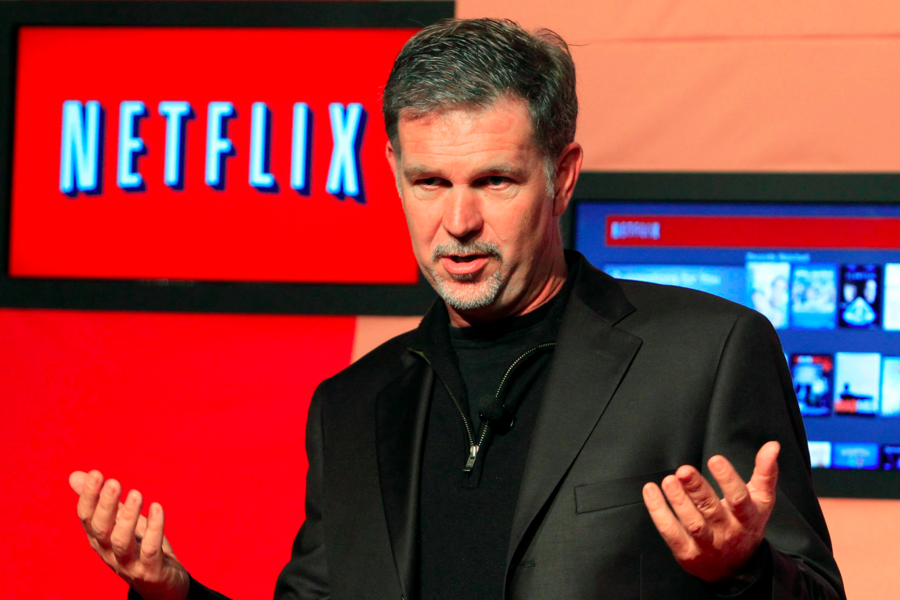Welcome to Ignition Lane’s Weekly Wrap, where they cut through the noise to bring you their favourite insights from the technology and startup world. Ignition Lane works with ambitious business leaders to apply the Startup Mindset to their technology, product and commercialisation problems.
This wrap goes out free to subscribers every Saturday. Don’t forget you can catch Gavin Appel discussing the week on the Startup Daily show on Ausbiz every Monday at 2pm. If you miss it, you can catch up on the week’s shows here.
Here’s their review of the week.
Let’s get digital, digital
Scomo finally got the memo. Kinda. “Every business in Australia is now a digital business,” says Scott Morrison. On Thursday the government announced a $1.2bn digital economy strategy as part of this year’s Federal Budget. But don’t get too excited. That budget is spread over six years, and more than $500m will be spent on overhauling the federal government’s myGov and My Health Record sites. The rest?
- $124.1m will be provided to build Australia’s capability in AI. By comparison, Israel is investing 5.26bn shekels ($2bn) in its AI plan over five years.
- $50m investment aimed at enhancing cybersecurity in government, data centres and future telecommunications networks. Again, this falls short.
- $111.3m to support the Consumer Data Right (CDR) rollout. The CDR helps consumers to compare and switch between products and services. Sure.
- More than $100m will go to boosting digital skills including a pilot program for work-based digital cadetships. Great, let’s hope this is spent wisely and reaches the people who need it the most.
- A digital games tax offset of 30% to help Australia take more of the $250bn annual global video game development market. Good.
Super-scheduler. Bet the Skedulo founders hadn’t contemplated how life saving a scheduling app could be when they set out to conquer the world. Check out these figures:
Since launching our vaccine scheduling app on the @Skedulo platform, we've helped citizens schedule over 11.5M vaccine appointments in the US. This accounts for more than 5% of all vaccines administered in the country. Incredible. pic.twitter.com/KTA8pKgS7a
— Matt Fairhurst (@mattfairhurst) May 4, 2021
Indeed it is incredible. Skedulo and Salesforce are also involved in the Papua New Guinea and NZ vaccine rollouts.
RIP Data Republic? ANZ, NAB Ventures, Reinventure and Singtel Innov8-backed data sharing start-up Data Republic has been placed in voluntary administration. All hope is not lost though, administrators expect to find a buyer. The company last raised $22m in 2018.
Bitcoin face-off. The identity of the founder of bitcoin has eluded us for over a decade. Australian computer scientist Craig Wright says he is pseudonymous bitcoin inventor Satoshi Nakamoto but has never shown proof. Now he’s in court battling a copyright infringement lawsuit, demanding that the website bitcoin.org remove Nakamoto’s bitcoin white paper from its website. In order to win the case, he needs to prove he is Nakamoto. And, if he is telling the truth, that makes Wright one of the 25 richest people on the planet – Nakamoto set aside 1 million coins for himself at inception. Could it be?! Is it really him?!
Meanwhile, Ethereum is hitting all new highs—over US$3.6k—making its 27-year-old founder a billionaire.
Jordans & Yeezys for the culture vultures. StockX ramped up its offering in Australia with a new authentication centre in Melbourne – its eleventh around the world. The marketplace has 125,000 product listings including sneakers, apparel, electronics, collectibles, and accessories. StockX is hugely popular with Gen Z and millennials. 19% of Australian adults have purchased or plan to purchase limited-edition sneakers in 2021. Interestingly, a few days before the StockX launch, eBay announced it is extending its Authenticity Guarantee program to Australia from the US.
Click Frenzy launched a new marketplace, Frenz Central. Mark Gray has left his role as Head of Marketplaces at Catch to lead the marketplace launch and growth. Some interesting data points:
Click Frenzy first launched in 2012 and has amassed a database of over 1.6 million shoppers. Without revenue from the marketplace, Click Frenzy is on track to record more than 30 percent growth for FY21. In 2020, the company experienced 61.95 percent more traffic compared to any other year.
IPO rumours. Influencer marketplace Tribe is pitching fund managers ahead of its IPO. Digital recruitment startup HireMii will list this month with a trailing revenue multiple of just 2.25 times.
Aussie Tech for India. SafetyCulture, Canva, Airtasker, Airtree and Blackbird launched Aussie Tech for India – a joint philanthropic program to raise awareness and provide both financial and logistical support for the sourcing and purchasing of oxygen and other medical supplies in India.
Playing defence in space. To increase Australia’s intelligence capability, Electronic Warfare company DEWC Systems and Australian launch services company Gilmour Space Technologies signed an MoU to launch the next generation MOESS system as a sovereign space-based Electronic Warfare system. MOESS stands for Miniaturised Orbital Electronic Warfare Sensor Systems.
Adelaide hosted Southstart – Australia’s human-first impact and innovation festival.
Standard day at @_southstart
Spoke about quantum & drone warfare with @MJBiercuk.
Drank 100yr old port with @cmack4life.
Saw a meteor/spacejunk fall from the sky with @JamieSkella.
And sang Billy Joel bus-kareoke with @trenna_probert.
— Ben Colley (@BJColley) May 6, 2021
Speaking of tech festivals, SaaStr is back. The “Super Bowl for SaaS” event will be held in the SF Bay Area, in person 27-29 September. “Vaccinated people only” are invited. So that’s pretty much all of Australia out.
 Guess who’s back? Insight’s back.
Guess who’s back? Insight’s back.
SafetyCulture raised US$73m, led by Insight “cutting Aussie VC lunch” Partners. The deal nearly doubles the value of the startup to US$1.6bn (A$2.1bn), making SafetyCulture an official (US) unicorn. SafetyCulture now has 1.5 million users in 85 countries. This year marks a decade since its flagship product, iAuditor (an inspection management/health and safety checklist app), was first launched. Well done, team.
https://twitter.com/SafetyCultureHQ/status/1389351346822959109
Una Brands raised $50m to buy and scale ecommerce brands, with the majority of acquisitions happening in Australia. These ecommerce roll up companies started popping up a lot last year in the US and Europe. Now Una is getting in on the mix down under.
Shuttlerock raised NZ$20m led by Trade Me founder, Sam Morgan. Shuttlerock wants to become the number 1 global player in digital video advertising.
Zoomo raised $15.4m for its electric bikes. The startup has partnered with Uber Eats and DoorDash to help delivery workers access e-bikes through weekly subscriptions. It also has corporate partners for last-mile delivery in Australia, the U.S. and London.
Quasar raised $12m. The Office of the NSW Chief Scientist & Engineer and CSIRO, along with partners Main Sequence, Vocus, Saber Astronautics, Fleet Space Technologies and Clearbox Systems, have backed the startup with $12m in funding, technology and industry expertise. Quasar wants create a way for satellite ground stations to communicate with hundreds of satellites at once.
Carted raised US$10m led by Blackbird (investment notes) and participation by the Atlassian gang – Tidal and Grok Ventures. a universal commerce API – allowing developers and content creators to build a direct checkout of any product from any merchant via any content on the web. We’re excited to see where this one goes.
Portainer.io raised NZ$6m from BVP, Sonae IM, and Movac. Portainer is a universal container management tool that works with Kubernetes, Docker, Docker Swarm and Azure ACI to allow developers to manage containers without needing to know platform-specific code. Portainer’s community now spans 190 countries, 4.8 million total users, and 500,000 regular monthly users, achieving 50% year-on-year growth.
Chemist2U raised $3m, led by AirTree. Chemist2U is an online pharmacy looking to deliver more medicines directly to customers’ homes. The company has signed up 150 pharmacies across Australia and has grown sales by 10% week on week (likely a low base but a great start).
Bluestone & Athena. Bluestone has partnered with the fintech Athena Home Loans to supply $2bn in funding.
Old dogs, new tricks
Three interesting partnerships were announced this week seeing old(er) tech companies cozy up with new(er) tech companies.
Sony & Discord announced a partnership that will integrate Discord’s popular chat app with PlayStation’s own built-in social tools. Acquisition talks were in the air recently. Microsoft was the main contender. Sony, which has taken an undisclosed minority stake in the company ahead of a rumoured IPO, must have given Discord a better deal.
Cisco & Box are ramping up their Box for Webex integration to make it easier for customers to work in the cloud and share content. Users will be able to connect a Box folder of their choice to a specific Webex space. Any content shared in the space will be added to the same Box folder. There were also Box acquisition rumours circulating a month ago before KKR invested US$500m. Perhaps Cisco was in the running as a buyer?
Adobe & Google are teaming up against Canva with Creative Cloud and Google Workspace. 2.6 billion people use Google Workspace, which puts Gmail, Calendar, Google Drive, Google Docs/Sheets/Slides, Meet, and more all in one place. Now Adobe is deepening the integration between Creative Cloud and Google Workspace by making Creative Cloud Libraries accessible via Google Docs and Slides.
Worldly things of interest
Third of Basecamp’s staff quit. On April 26th, Basecamp founder and CEO Jason Fried posted on his blog about some policy changes at Basecamp. One of which was that the company would ban “societal and political discussions” at work. Not surprisingly, employees and the twittersphere were up in arms. Basecamp then offered anyone who wasn’t comfortable with the new policies the option to leave the company.
Around one third of employees took up that offer, including the Heads of Marketing, Design, Brand & Experience and Customer Support. Fried has since apologised, but the policy remains in place. Read about the full saga here.
No CEO, no managers & open book salaries. In contrast to the Basecamp approach, Argentinian software development startup 10Pines runs a “sociocracy”:
Salaries are decided [at a] “rates meeting”, which includes everyone except new hires still on probation. Employees (or mentors on their behalf) can put themselves forward for a raise, which is then openly debated… There’s no overall CEO and no real managers within teams, though there are senior figures who are partners, known as “associates” and “masters”.
“The key thing is to understand there is a difference between equal and fair,” says co-founder Jorge Silva. “We are not all equals, but we try to be fair. We don’t want to be like the classic company that tries to control employees and treats them like children.”
TikTok finally has a new permanent CEO. It has been eight months since former TikTok CEO Kevin Mayer (ex-Disney) quit amidst the Trump administration leaning against the Chinese-owned social media giant. He lasted just 100 days. Now 39-year old Singaporean Shou Zhi Chew will be assuming the role, moving from his post as CFO at ByteDance. Prior to that, he was part of the senior management team in Xiaomi, another Chinese tech behemoth.
Poor little Netflix. It keeps being compared, firstly to YouTube:
For the first time, Netflix & YouTube will take in same amount of revenue this year: $30B
Two very different approaches to $30B:
• Netflix: 200M paying subs, produces its own content ($17B content budget), low margins
• YouTube: 2B users, users make the content, high margins— Rex Woodbury (@rex_woodbury) May 4, 2021
Then to the iPad:
The iPad did more revenue last quarter than Netflix. https://t.co/WNPRAlYtL4 pic.twitter.com/HlvJmyzxSv
— Michael Batnick (@michaelbatnick) May 4, 2021
Peloton: How not to do PR. Peloton is recalling approximately 125,000 of its Peloton Tread+ treadmills. It will also stop selling them. This is a major reversal by Peloton. Just weeks ago it refused to cooperate with the U.S. Consumer Product Safety Commission and denied that the treadmills were dangerous, despite being linked to the death of a six-year old child and injuries of 29 others. It says the recall will cost $165m. This week news also surfaced that the company had a leaky API that let anyone access private account data, dating back to January. Its 3Q results were strong. Sales grew 141% to US$1.26bn, while average “net monthly connected fitness” churn hit a six-year low of 0.31%. It seems the company expects its cult-like following to stand by the brand – it expects fourth-quarter sales of US$915m.
Bill.com is buying Divvy for US$2.5bn, which is around 25x Divvy’s current revenue run rate. Divvy is a Utah-based corporate spend management startup that competes with Brex, Ramp and Airbase. Bill.com is a US$12.7B NYSE listed tech company that automates back-office financial processes for SMBs.
SpaceX turned 19. The team marked the occasion with the incredible flight test below. Oh, and Musk is hosting Saturday Night Live.
This week’s wayback machine: the internets explained in 1994.
On this day in 1994: BBC explains how the internet works.pic.twitter.com/xoPtRv5yOw
— Jon Erlichman (@JonErlichman) April 29, 2021
That’s a wrap! We hope you enjoyed it.
Join us on Clubhouse, 8.30am Tuesday.
Bex, Gavin and the team at Ignition Lane
























Trending
Daily startup news and insights, delivered to your inbox.